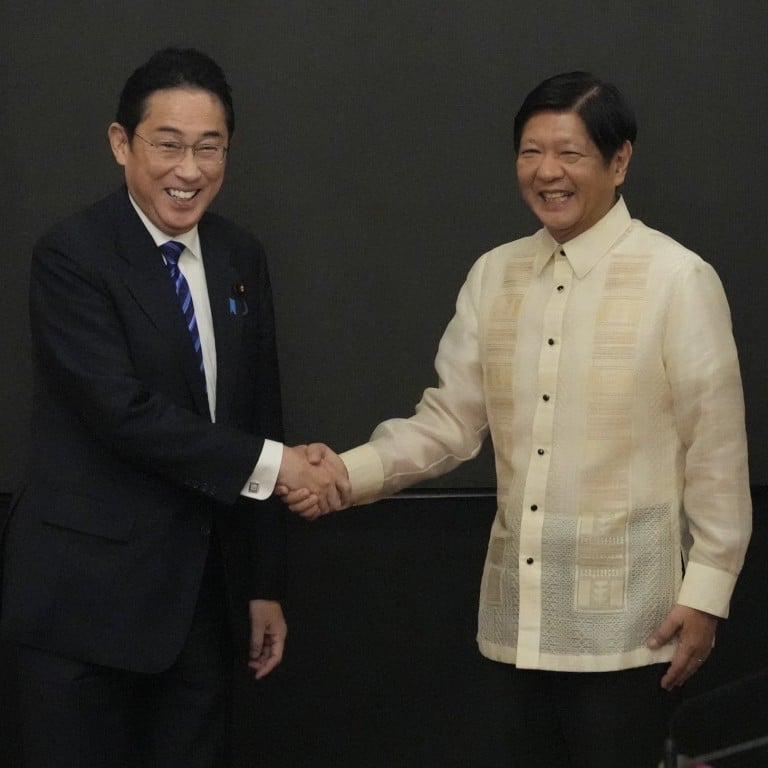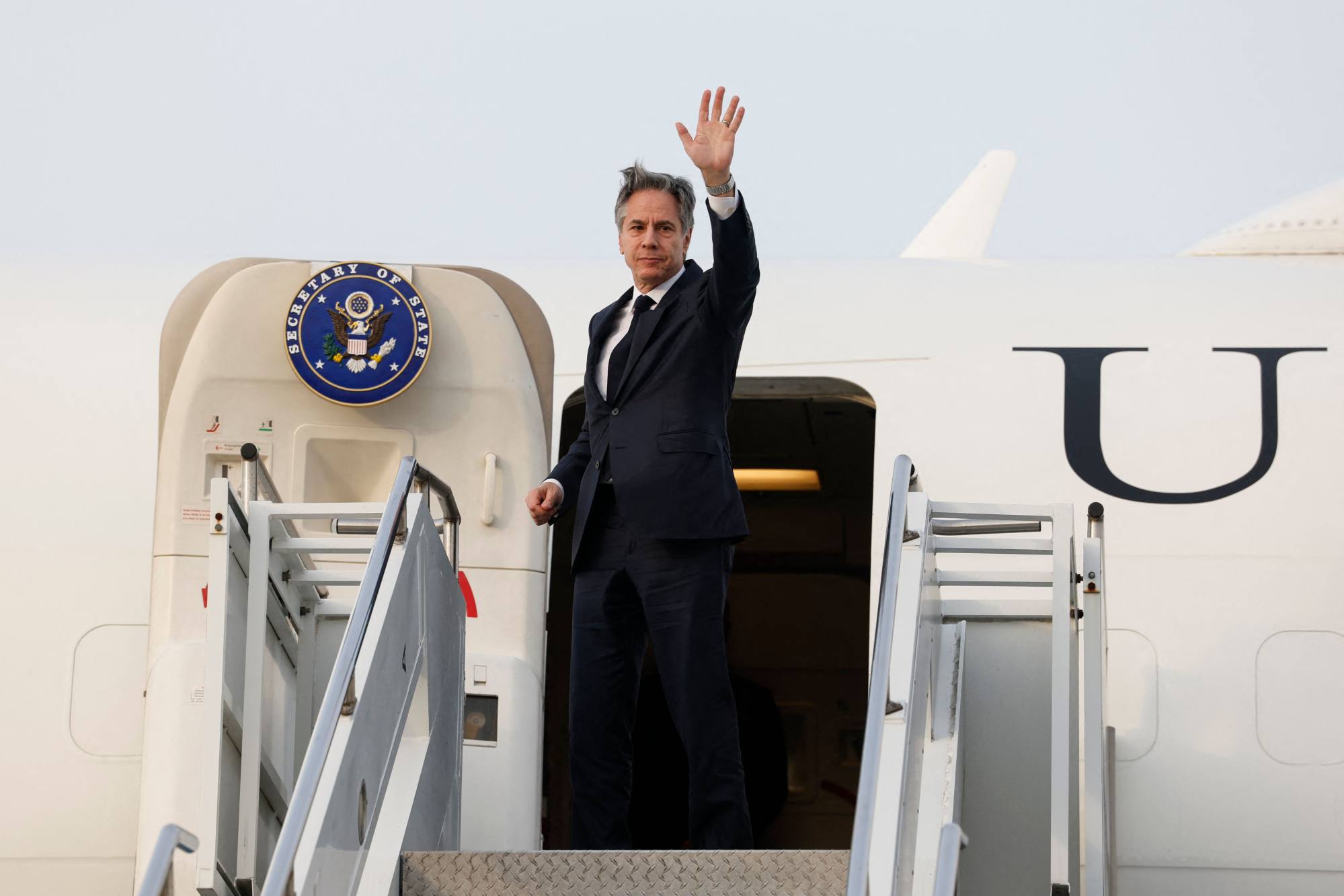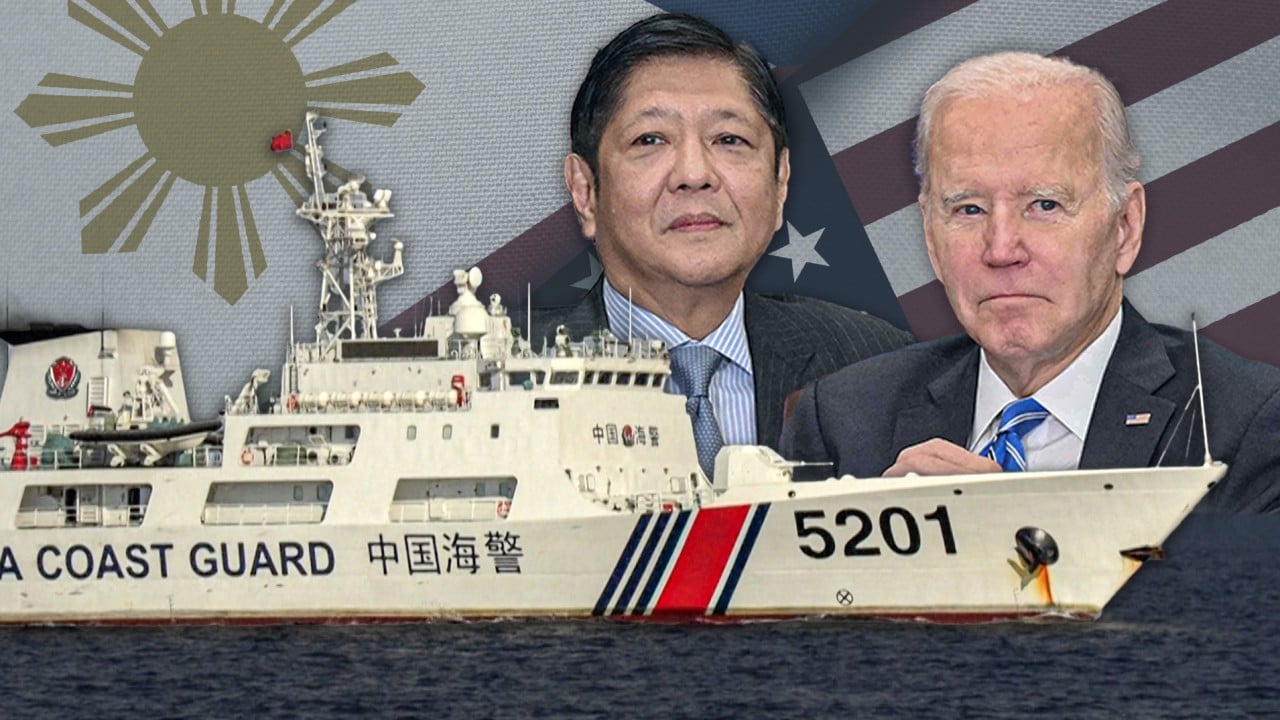
South China Sea: could Japan be drawn to help defend Philippines in 3-way summit with US?
- Biden, Kishida and Marcos Jnr are set to meet next month in a landmark summit over the issue deemed by Manila to be the top ‘flashpoint’
- China has no one to blame but itself if a ‘Nato-type alliance’ later forms to confront its aggression, an analyst says

Malacanang Palace has not announced any US trip for the Philippine president, but said he would be holding talks with Blinken on Tuesday.
Blinken’s office also confirmed he would meet Marcos Jnr and his counterpart, Foreign Affairs Secretary Enrique Manalo, to discuss broadening cooperation on a range of issues, including regional peace, human rights, economic prosperity, semiconductors and the digital economy.
Earlier this month, Department of National Defence Secretary Gilberto Teodoro said his department and the Armed Forces of the Philippines (AFP) had pivoted from counter-insurgency to an external defence strategy to protect the country’s maritime interests and borders.
“We are developing our capability to protect and secure our entire territory and exclusive economic zone (EEZ), in order to ensure that our people … shall freely reap and enjoy the bounties of the natural resources that are rightfully ours within our domain,” he said on March 8 in a statement, without elaborating on the details.
US to fund a port on Philippine island near Taiwan. What will it be used for?
The trilateral summit could potentially lead Manila to further expand its defence cooperation and capabilities by drawing Japan into its closest circle of military allies, according to Renato Cruz De Castro, an expert on US foreign policy in Asia.
De Castro said in an interview on Saturday with This Week in Asia that the Philippines’ strategic defence shift involved a recognition that Manila could not do it alone and needed external allies. That was why it was relying on the US’ “ironclad” commitment to come to its aid if any of its forces, vessels or territory was attacked.
“And that is why the Philippines and Japan are negotiating a reciprocal access agreement (RAA)” that would enable members of the Japan’s defence forces to help the AFP upgrade its maritime capability with training and more equipment, donated or sold at friendship rates, he said.
De Castro noted that the RAA would not be in place during the joint Balikatan military training exercises in May, with the full text expected to be finished later this year. However, he cited a source telling him that “only one paragraph needs to be addressed” in the ongoing talks.
This Week in Asia last Friday contacted sources in the Philippine Senate, who said the proposed RAA had not yet been submitted by the presidential palace for the Senate’s concurrence, which the 1987 constitution requires.
Senate President Juan Miguel Zubiri told reporters last November, two days after Kishida addressed a joint session of Philippine Congress, that the RAA would only be “for training” and would not allow Japanese forces to have a permanent rotational presence like the American troops.
However, as in the case of the US, the RAA could be expanded in the future to include that, analysts said.
As early as November last year, AFP chief of staff General Romeo Brawner Jnr said he hoped a “quad” grouping could be formed to conduct joint military exercises and patrols in the Philippines’ EEZ.
Will stronger Manila-Canberra ties lead to Western support in South China Sea?
Brawner said the US and Australia had expressed “a desire” to join such a quad, but added there remained “no commitment” from Japan, with whom the Philippines had begun negotiating a security agreement.
Beijing would likely condemn such a development as Washington’s devious plan “to encircle” China, De Castro said.
While the Philippines’ bid to form these defence groupings “might possibly lead to a Nato-type alliance, which is China’s greatest fear”, De Castro said Beijing only had itself to blame.
“If China were not aggressive, coercive and expansionist, there would be no reason for [the Philippines] to form these minilaterals,” he said.
The Philippines was an ideal maritime partner for the countries because of “its archipelagic nature that could accommodate forward-deployed forces from the US and even from Japan, and, of course, because of its proximity to Taiwan”, he added.
The international-studies professor from De la Salle University said that while the three-way maritime strategy was being proposed so near the US elections in November, he did not think Washington’s Indo-Pacific policy to counter China would change even if Republican candidate Donald Trump were to get elected.
“Because that’s the only thing that unites Americans – the China challenge. But they’re divided regarding Russia and Ukraine,” he said.


